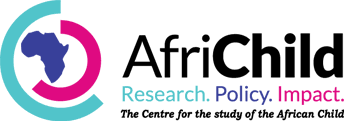Trainings
We carry out training in a wide range of areas aimed at building the capacity of researchers, civil society and government technocrats to better deliver services for the improvement in children’s wellbeing.
Policy Makers and Practitioners use of Research Evidence Training (PURE)
Through its project, “Building the next generation of researchers”, the AfriChild Centre is building capacity of policy makers and practitioners to utilize research evidence in designing, implementation, monitoring and evaluation of their programs and/or policies. The overall objective of this training is to build capacity of 30 multi-disciplinary practitioners and policy makers from government and NGOs in Uganda in evidence-based interventions to address violence against children in Uganda. This is with specific focus on child abuse and sexual exploitation (CSAE) and other child protection priorities. The first training workshop was held in November 2018 and was attended by participants from a wide range of NGOs including Parenting Uganda; World Vision; Dwelling Places and Retrak. Those from government were from the Ministries of Gender, Education, Health and Justice. At the end of the one-week training, participants demonstrated knowledge to identify and synthesize research evidence for action; preparing knowledge and program briefs and processes of policy-making, implementation and evaluation and the need for an evidence-based approach.
Inter- University Child-focused Research Methods Training
February 1 2019 saw AfriChild roll a massive success up its sleeve in the name of thirty trained university lecturers in child-focused research methods. That day marked the end of a journey that begun in January 2018. The trainings dubbed ‘Interuniversity research methods trainings’ were serialized into three with the first occurring in January 2018, the second in June 2018 and the third in January 2019. They aimed at skilling researchers to conduct rigorous child-focused research and to effectively disseminate research findings to inform policy and programs to enhance child wellbeing. Participating universities were: Makerere; Kyambogo; Gulu; Muni; Uganda Christian University; Uganda Martyrs University and Nsamizi Training Institute.
Through the trainings, participants have been equipped with dynamic research skills such as data analysis and management; ethical considerations in child focused research; grants writing and methods of involving children in data collection. After the second training held in June 2018, AfriChild awarded all the universities with UGX 20M each to undertake research in children’s issues.
Consultative inter-university meeting
In January 2016, Africhild centre held an inter-university consultative meeting to discuss collaboration with six universities in Uganda on research and mentorship of young researchers. Participants identified a dearth of skilled researchers as a critical challenge in rigorous research. Africhild Centre’s strategic plan focuses on building a cohort of the next generation of researchers and practitioners. In line with its Strategic Plan, Africhild has commenced on the process of bridging this gap by conducting two-day training for 32 researchers. Participants were drawn from six universities namely Kyambogo University, Uganda Christian University, Mukono, Uganda Martyrs University, Nkozi, Makerere University, Nsamizi Institute and Gulu University. The two-day training was facilitated by Professors from Columbia University; Prof. Les Roberts and Prof. Neil Boothby and Associate Professor Amy Ritterbusch.
Training in Future Search Research Methodology
AfriChild, conducted a two days’ workshop on Future search methodology from June 3- 4, 2016.
The two day training was facilitated by Associate Professor Amy Ritterbusch from Colombia University. Participants for the training included Africhild staff, Principal Investigators, Research Assistants involved in qualitative data collection for the institutional and street component, peer leaders and children who are in the process of positively transitioning from living and surviving on the streets.
The purpose of the Future search training was to build capacity of Africhild research team in community engagement approaches and future search methodology; build the self -identification and planning skills of children transitioning from living on the streets; validating the data collected from children transitioning from living and surviving on the streets as well as creating a healthy harmonized working relationship between the researchers, peer leaders and children transitioning from living and surviving on the streets.
Future search training methodologies used were participatory, interactive methods and group activities, actively engaging research assistants, peer leaders and children transitioning from living and surviving on the streets. Participants were guided on self- identification and reflection on their past, present and future situations, obstacles and opportunities. They were also guided on how to prioritize and set future plans.
Training in NVIVO Software for Qualitative Data Analysis
AfriChild conducted two days’ training on use of the qualitative data analysis software, Nvivo. The two day Nvivo training was held from June 9- 10, 2016 and was facilitated by Associate Professor Amy Ritterbusch from University of Colombia. Participants for the training included Africhild program staff, research assistants and peer leaders. The purpose of the two-day NVIVO training was to equip the qualitative research team with skills of coding, code book creation and data analysis using Nvivo 11 software. Participants were availed with transcribed data from the recorded interviews to generate codes and code books; practice as they learn how to code and analyze qualitative data.



